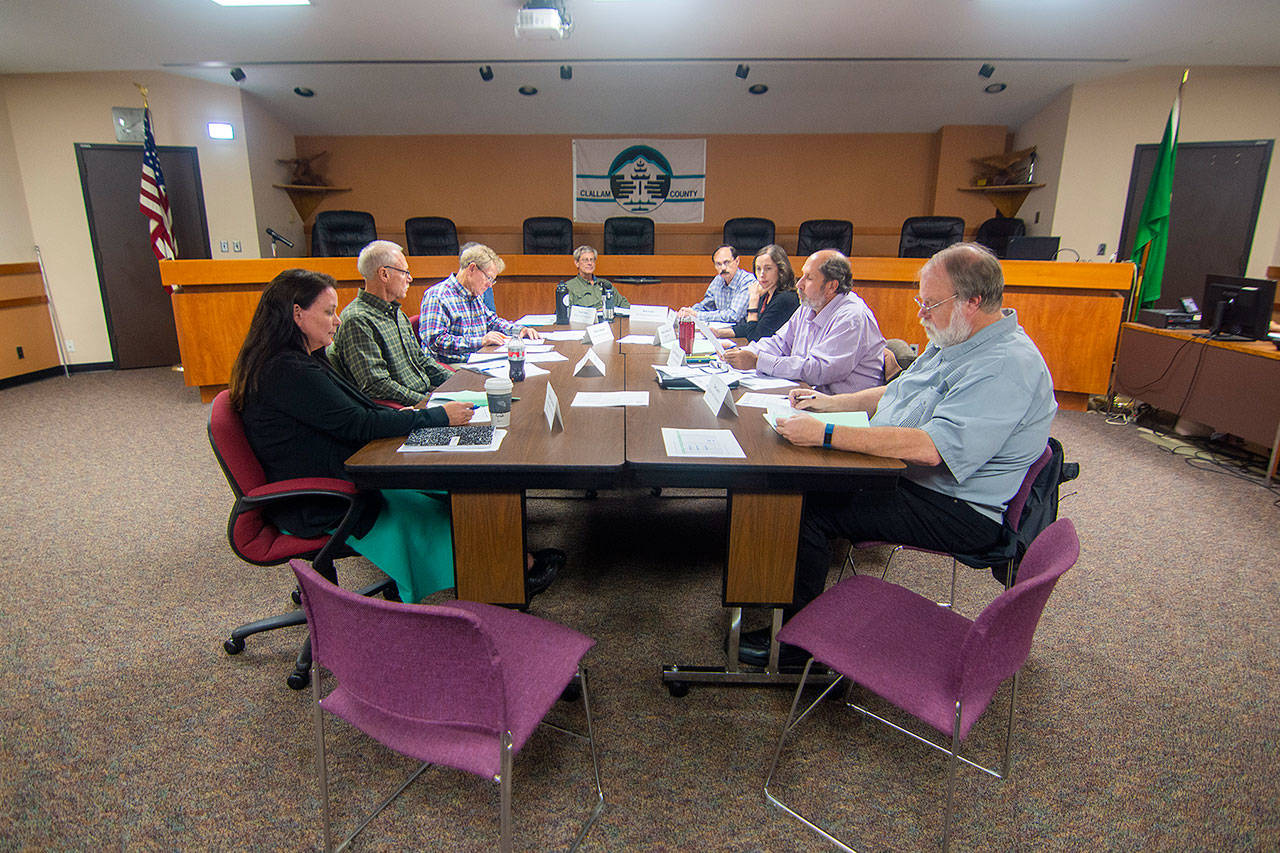The Clallam County Board of Health agreed on Sept. 17 to send a letter to the Jamestown S’Klallam Tribal Council in support of the tribe’s planned Healing Campus on the west side of Sequim.
The board unanimously agreed — with Sequim City Council Member Bob Lake abstaining — to send the letter, which says the Board of Health is “committed to supporting evidence-based practices to address the opiate epidemic, and … will continue to support increasing access to treatment until every citizen in our county who is struggling with addiction has the opportunity to get sober.”
The Board of Health does not have any actual role in the project and is not making any decisions concerning the facility.
The vote was taken after a lengthy public comment period, which involved 10 people — including Save Our Sequim members — who opposed the tribe’s planned medication-assisted treatment center and two people who expressed support.
Several people who spoke said they don’t oppose medication-assisted treatment, just the location selected for the regional facility. One claimed addicts will be sent to Sequim on buses while others claimed there will be an increase in crime and that there might be a threat to senior citizens who are using their walkers on the sidewalks.
Clallam County Health Officer and Jamestown family physician Dr. Allison Unthank told the crowd that there are many misconceptions about medication-assisted treatment and that they likely interact with people in recovery every day.
She said that Suboxone is used to help people feel normal so that they can participate in other therapies that keep them sober. It also prevents people from overdosing if they relapse.
“The data we have is that MAT is by far the most effective option,” Unthank said. “As long as we want to fix the opioid epidemic we have to choose the most effective option.”
Unthank also addressed the notion that people who are trying to get sober are dangerous.
“They are not,” she said. “There are many, many people in your community who are trying to get sober and they are not a risk to you. In fact you probably don’t know who they are, especially if you are very vocal about not supporting their sobriety.
“My patients live and work in Sequim and you know them, you just don’t know that you know them,” Unthank said.
“Many of them work at the grocery stores you go to, many of them are all over town and I worry about the message that they are hearing that people think they are a danger to society. They are our family members, they are our friends and they are our neighbors and we owe them our support in getting their lives back on track.”
Inga Able of Sequim told the board that overdoses in Clallam County have been decreasing since 2016. The county’s opioid surveillance report shows that there were 62 reported overdoses in 2016, 31 reported overdoses in 2017 and 30 reported overdoses in 2018, though county officials have said that decrease can likely partially be attributed to the increase of Naloxone in the community and fewer overdoses actually being reported.
Able also told the board that her research has shown that in 2018 Clallam County had capacity for 300 patients in medication-assisted treatment, a number that has risen to 713 and will be at about 930 when another clinic opens in Port Angeles.
“I don’t see the numbers since 2018 that suggest we have such a high need for treatment,” she said, suggesting a facility like the one proposed should actually be placed in King, Pierce or Snohomish counties.
Social worker Amy Miller spoke in support of the Healing Campus, emphasizing that what is proposed is unlike any other treatment facility in Clallam County.
“What Jamestown is offering is not just Suboxone,” Miller said. “They are offering wraparound services which our citizens don’t have access to. This is to increase access to evidence-based treatment and removes those barriers so folks can continue in their treatment and move toward success.”
Tribal officials have said the medication-assisted treatment facility will be unlike any other on the North Olympic Peninsula, where almost all medication-assisted treatment is provided by primary care providers.
The tribe purchased 20 acres of land zoned for health care on South Ninth Avenue, adjacent to U.S. Highway 101, where it will build a 15,000-square-foot medication-assisted treatment facility that will eventually treat approximately 250 patients. The hope is to open it in 2021.
The state provided the tribe with $7.2 million in capital funding and the tribe expects to spend more than $3 million of its own money on the project.
Patients at the outpatient facility will receive daily medications for their opioid-use disorder and receive wrap-around services of primary care, dental, individual and group counseling, childcare and transportation if needed.
Clallam County Commissioner Mark Ozias addressed several “themes” he said he heard during public comment.
“I would like to reinforce that the type of patient the Jamestown folks have talked about bringing in to this facility and providing treatment for … will be evaluated to assess their readiness,” Ozias said.
Ozias told the crowd that the tribe’s Healing Campus will likely free up resources at Olympic Medical Center’s emergency department.



